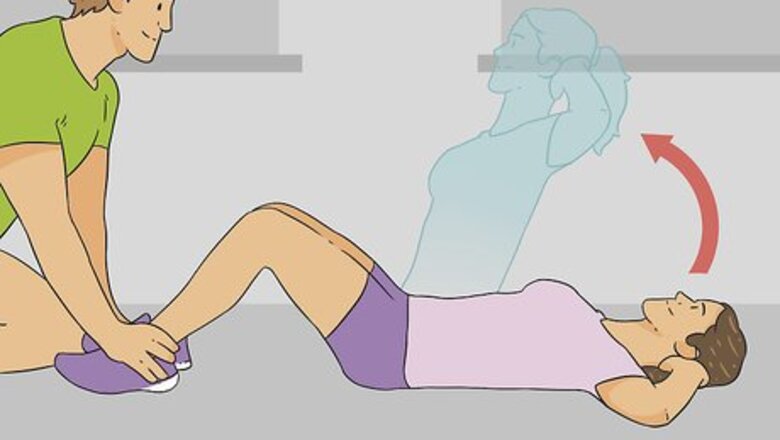
views
Doing Crunches to Work Your Upper Abs
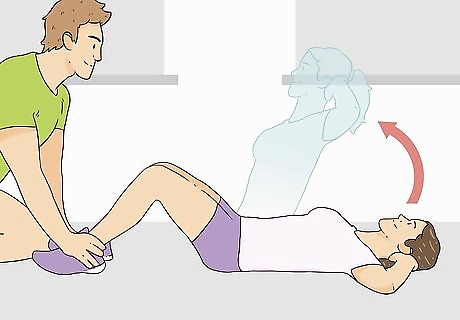
Flex your upper abs by doing sit ups. Lie flat with your knees bent up at an angle. Place your toes under the edge of a heavy piece of furniture. Cross your hands over your chest. Flex your abs and raise your torso up until you are nearly sitting up. Keep holding the tension in your abs, and lower yourself back down. Resist the temptation to “bounce” up and down. Raise and lower yourself carefully.
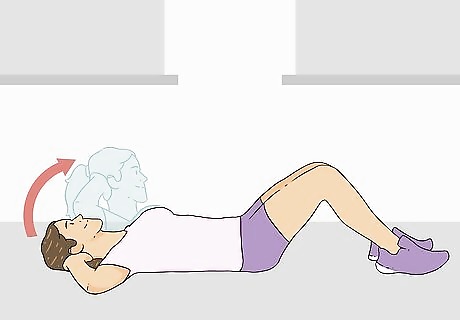
Contract your upper abs with some regular crunches. Lie on your back, with your knees bent at an angle and your feet flat on the floor. Place your hands on the side of your head, but don’t grab it. Contract your ab muscles, then exhale slowly for 5 seconds while raising your shoulders off the floor up to 4 inches (10 cm). Count for 1, then come down slowly while inhaling for 5 seconds. Repeat the exercise several times. Don’t “bounce” up and down--work slowly. Don’t lock your hands behind your head and pull on it. Raise yourself with your abs. The quality of your crunches is more important than the quantity.
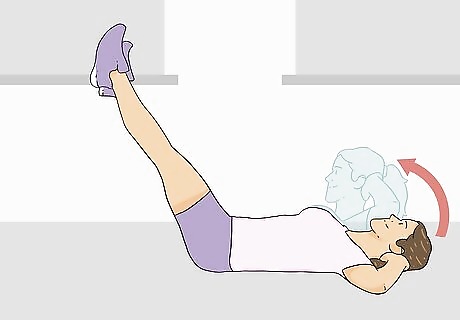
Raise your legs to isolate the upper abs during crunches. Lie on your back with your knees up in the air at a right angle. Keep your hands either across your chest or behind your head. Contract your upper ab muscles to raise your shoulders off of the floor. Hold for a few seconds, lower, and repeat.
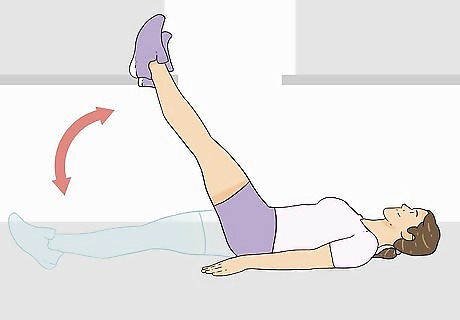
Try a hip lift reverse crunch. Lying flat on your back, extend your legs in front of you in the air. Use your abs to lift your hips up off the floor momentarily while keeping the rest of your back flat against the floor. Lower your hips back down. Your hips should move straight up rather than in a crunching motion during the exercise. Bend your knees slightly for comfort, if needed. This is safer for your neck than a traditional reverse crunch, which can put pressure on your neck.
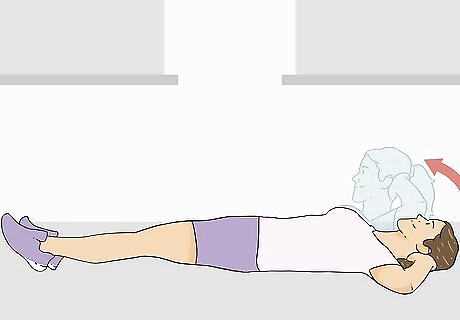
Isolate your upper abs while doing straight crunches. Lie back with your legs straight and your feet extended. Keep your hands either over your chest or behind your head. Contract your upper ab muscles so that your shoulders raise up off of the floor a few inches. Hold the position, then lower back down. Repeat.
Adding Other Exercises to Your Upper Ab Workout
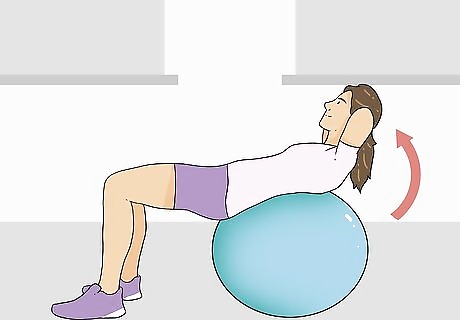
Use your swiss ball to work your abs. Staying face up, drape yourself over your swiss ball. Keep your hands behind your head, but don’t grab it. Squeeze your abs and raise your torso upwards, but don’t lose contact with the ball. Hold for 1 second, then lower yourself back down as you extend your abs. Repeat.
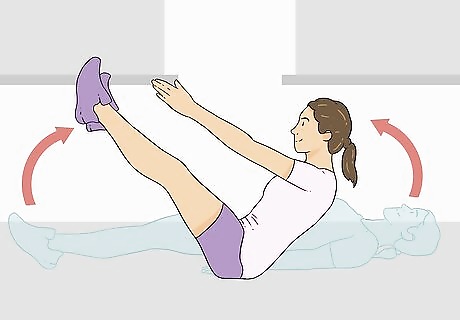
Flex your upper abs while doing toe touches. Start by lying on your back. Raise your arms and legs so that they point straight up in the air. Reach toward your toes, flexing your upper abs as you do. Lower back down, then repeat the motion.
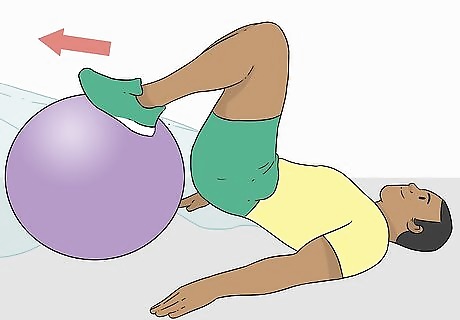
Engage your core with some fun egg curls. Place the heels of your feet on top of a swiss ball while lying on your back. Push the ball away from your body by using your heels. This will move your body into a straight position. Engage your core while you do this. Use your heels to roll the ball back so that your knees move toward your chest. Repeat.
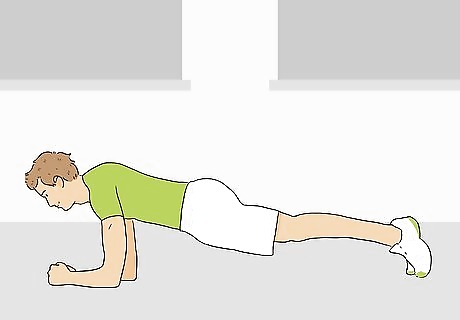
Hold yourself in a plank position. Lie face down, flat on the floor. Raise yourself up on your toes, keeping your forearms on the floor and your elbows bent at a right angle. Contract your abs and glutes. Keep contracted and hold for a few seconds, such as a count to 20. Lower yourself back down slowly, then repeat the whole exercise several times.
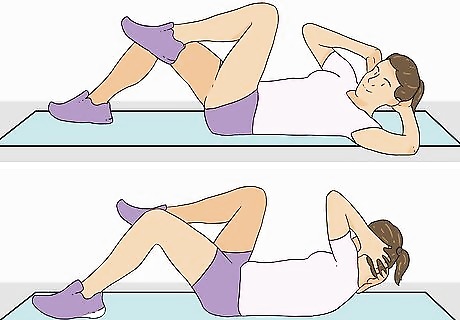
Step it up with an ab sprinter. Lay flat on your back with your arms at your sides. Contract your core tightly and raise your torso up. As you do, raise your right arm and left leg. Let your right elbow and your left knee reach the same height. Slowly return to the ground and repeat with the other side.
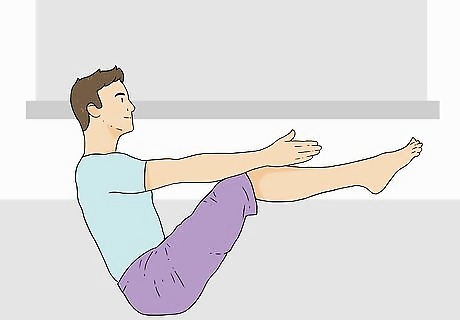
Strengthen your core with a v-tuck. Lie on your back with your legs out and your arms at your sides. Raise your torso and legs toward each other. Keep your knees drawn up to your hips. Hold for a few seconds, then lower yourself back down. Keep your head and feet off the ground, and repeat the exercise.
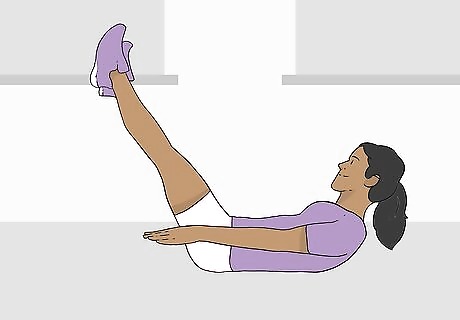
Push yourself with some Pilates 100s. Lay on your back with your palms face down at your sides. Raise your legs up so that your feet are at a 45 degree angle up from the floor. Roll your shoulders up off of the floor, bringing your chin toward your chest. Exhale as you pulse your arms up and down at your sides for a count of 5 seconds, then inhale—still pumping—for a count of 5. Repeat the exercise 10 times. Keep your shoulders, neck, and head relaxed as you lift your upper torso off the floor using your core strength. Focus the tension instead on your abs. If you’re starting out, perform the exercise with a 45-degree angle from your hips to the floor, but bend your knees. This will take some pressure of your back. Repeat the cycle. Keep counting in units of 5 until you reach a complete count of 100. When you’re done, lower your legs back down to the floor and rest. As you become more advanced, try reducing the size of the angle between your hips and the floor. The exercise will become more difficult the smaller the angle is.
Creating an Upper Ab Routine
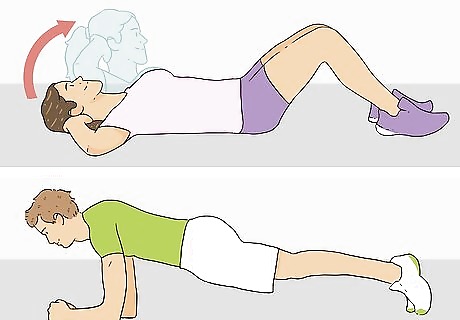
Work ab exercises into your routine 2-4 times a week. A few sessions a week will help build strength and develop muscle mass. If you are doing ab exercises for rehab or to avoid injury, however, you should talk to a therapist first to determine the frequency that's right for you. Aim for 3 sets of 10-20 reps per set of crunches. Plank holds can be up to 3 minutes long. You can vary the exercises you try. For instance, you could do reverse crunches on Monday, straight crunches on Wednesday, and Pilates 100s on Friday. Avoid doing ab exercises every day since your muscles need time to rest and recover.
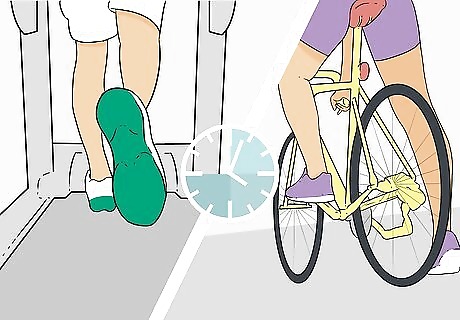
Up the intensity. Gradually build up your reps and sets to their maximum safe level outlined above to see the most impact. If you still aren’t pleased with how your abs look, try mixing in some cardiovascular exercise and interval training to burn fat. Use a calorie-counting app to monitor your calorie intake and ensure you’re not sabotaging your hard work, too.

Eat well to take care of your abs. What you eat has a big impact of the quality of your figure. A layer of fat can hide a very strong core. Eat a diet rich in whole grains, and healthy proteins like egg whites, chicken, and fish. Get plenty of vegetables, but avoid fats. For instance: For breakfast, have some steel cut oats and an egg white omelette. Have a grilled chicken salad for lunch. Try baked fish with buckwheat for dinner.
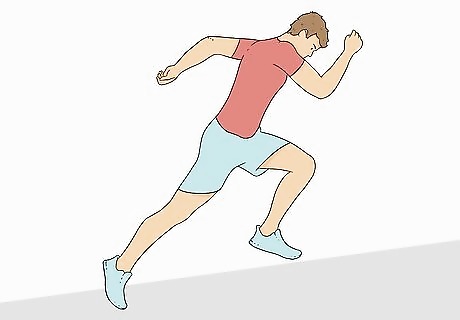
Work cardio exercises into your routine. Start with 15 minutes of cardio every other day, then increase to 30 or more. Cardio exercises are good for your overall health, giving you good support when you're trying to work your upper abs. Excellent cardio activities include: Using a treadmill Spinning Jump roping Running











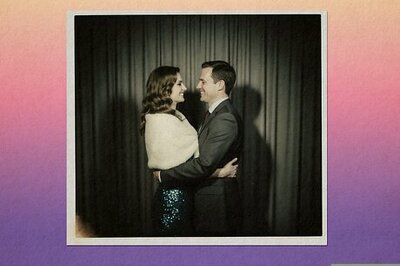






Comments
0 comment